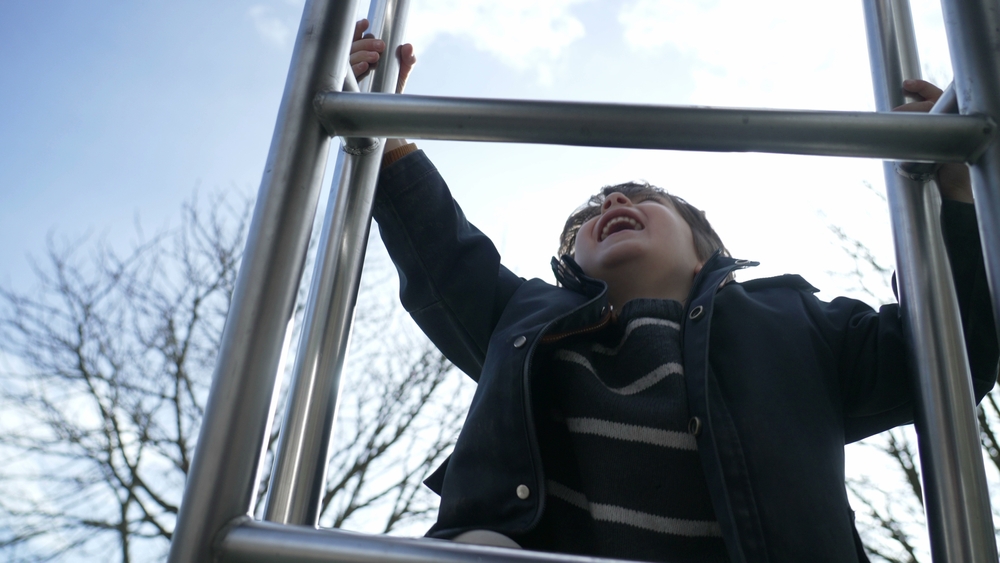Tiera Turner faced a predicament that many parents of neurodivergent children can relate to when her first son was diagnosed with autism in 2019. She couldn’t find a place where her child could be himself without having to apologize or explain himself. Turner has two sons with autism and has learned that services to support children with autism and their families are unexpectedly sparse in Detroit.
This scarcity extends beyond schooling and healthcare, including recreational areas, posing numerous challenges for families like Turner’s. She says, “Having a place where I can take him is hard,” adding, “I wouldn’t even say that the city of Detroit has any parts that are sensory-friendly or autism-friendly at all.”
Approximately 40,000 children in Michigan will have autism by 2021, but few parks in the state have accessible elements tailored for children on the spectrum. The harsh Detroit winters make outdoor play difficult, emphasizing the importance of year-round, accessible play areas.
We Rock the Spectrum
Tiera Turner took matters into her own hands by establishing a neurodivergent-friendly play environment in her backyard. Her vision featured a trampoline, rock climbing wall, and aquatic activities to meet the specific requirements of her sons. She knew, however, that most children do not have this option. Turner is renovating an empty site on Detroit’s West Side into a sensory gym and activity center which will become part of the national We Rock the Spectrum franchise.
The slogan of We Rock the Spectrum, “Finally, a place where you never have to say ‘I’m sorry,'” captures the core of their mission: to create environments where neurodivergent children and their families feel entirely embraced.
We Rock the Spectrum’s adventure began in 2010 when Dina Kimmel founded the first gym in Los Angeles to serve her son, Gabriel, who was diagnosed with moderate-to-severe autism. She was motivated by a simple but strong idea: to create a safe and welcoming environment in which her son and others like him could belong without judgment.
Kimmel was inspired to take action after getting ejected out of numerous gyms owing to her son’s sensory overload meltdowns. She began by renting a nearby gym for Gabriel’s treatment sessions and later converted a space in her house into a sensory gym. Gabriel’s life was transformed, with fewer meltdowns, better sleep, and healthier eating habits. It became a happy place for her non-autistic children as well.
The advantages of inclusive play for youth development
The importance of play in youth development is well understood. Play assists youngsters in dealing with stress, developing social skills, improving self-regulation, and sharpening cognitive ability. The benefits of play are much more substantial for neurodivergent children. Play therapy, in particular, helps children with autism express themselves easily and positively redirect their behaviors.
The increasing demand for autism-friendly play areas
Since 2000, the number of autism diagnoses has gradually increased, owing to increased awareness of the disorder and improved diagnostic techniques. The CDC estimates that 1 in 36 8-year-olds will be on the autism spectrum by 2023, up from one in 44 in 2018. Unfortunately, evidence shows that children of color, particularly those with impairments, have limited access to play venues, exacerbating the difficulties faced by neurodivergent kids.
We Rock the Spectrum gyms are designed exclusively for neurodivergent children. They also welcome neurotypical siblings, promoting an inclusive environment for families. To assist nonverbal children, these gyms include the Picture Exchange Communication System (PECS) and Proloquo2Go, an augmentative communication app.
The sensory apparatus and play spaces cater to many sensory systems, such as the vestibular and proprioceptive systems. These aspects aid in developing critical skills in children with sensory processing disorders. Trampolines, monkey bars, climbing mountains, and hammock swings are among the equipment available to meet a variety of sensory needs.
Where understanding meets inclusion
To understand the particular needs and behaviors of neurodivergent children, the We Rock the Spectrum team receives specialized training, including registered behavior tech training. While therapy is not provided by the gym, ABA therapists can rent rooms within the facilities. This method guarantees that the personnel is familiar with autistic children’s behavioral tendencies.
One of the most important components of We Rock the Spectrum’s purpose is to provide insurance-covered respite and one-on-one care. This assistance allows parents to relax, knowing that their children are in the hands of caring specialists. Tiera Turner emphasizes the importance of this by saying, “Making sure that I would accept it for my child is going to be the major difference for this gym.”
We Rock the Spectrum is dedicated to promoting disability inclusion through volunteerism and employment. When neurodivergent children reach adulthood, they frequently confront challenges to further education and employment. The group is aiming to change this narrative by providing training and career opportunities for those on the autism spectrum, thereby assisting them in developing key life skills.
The testimonials speak for themselves. We Rock the Spectrum not only changes lives, but also plays an important role in the larger struggle to create a more inclusive and compassionate world for neurodivergent individuals.












